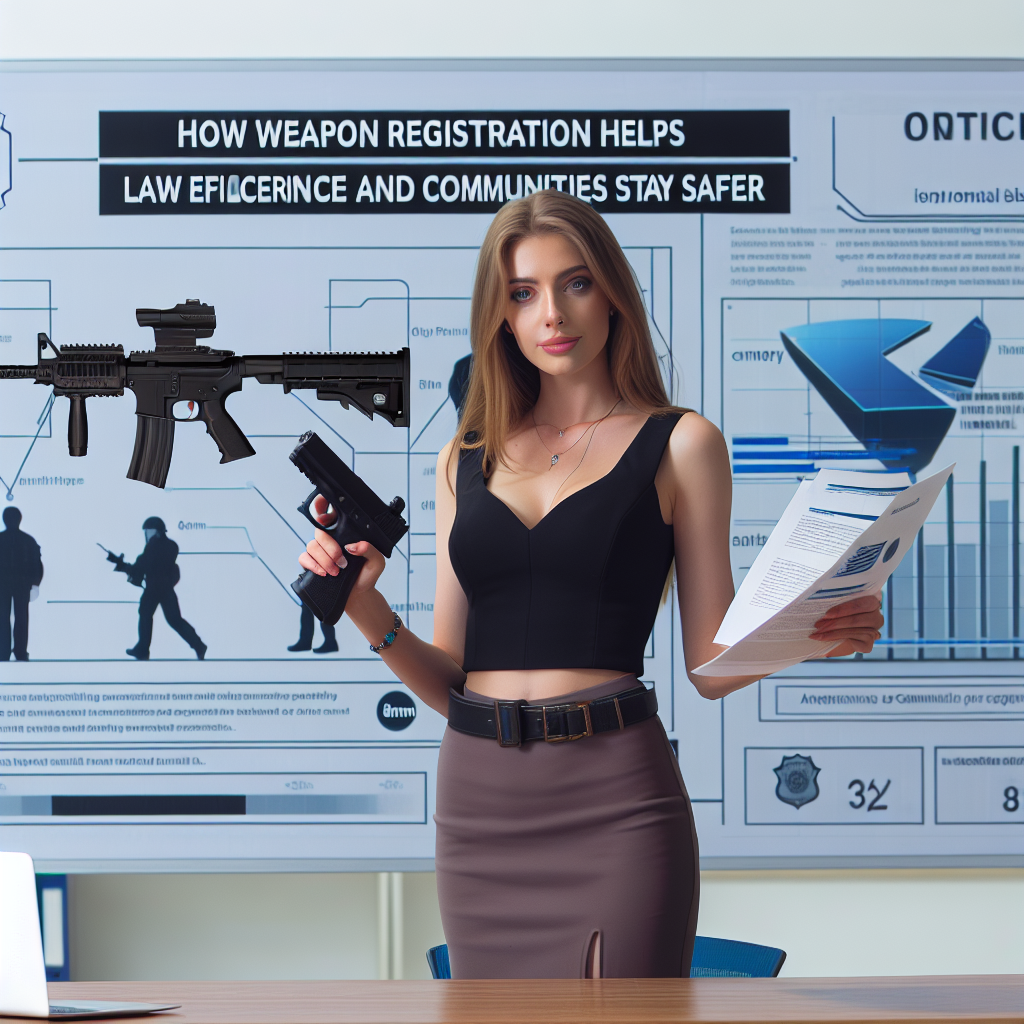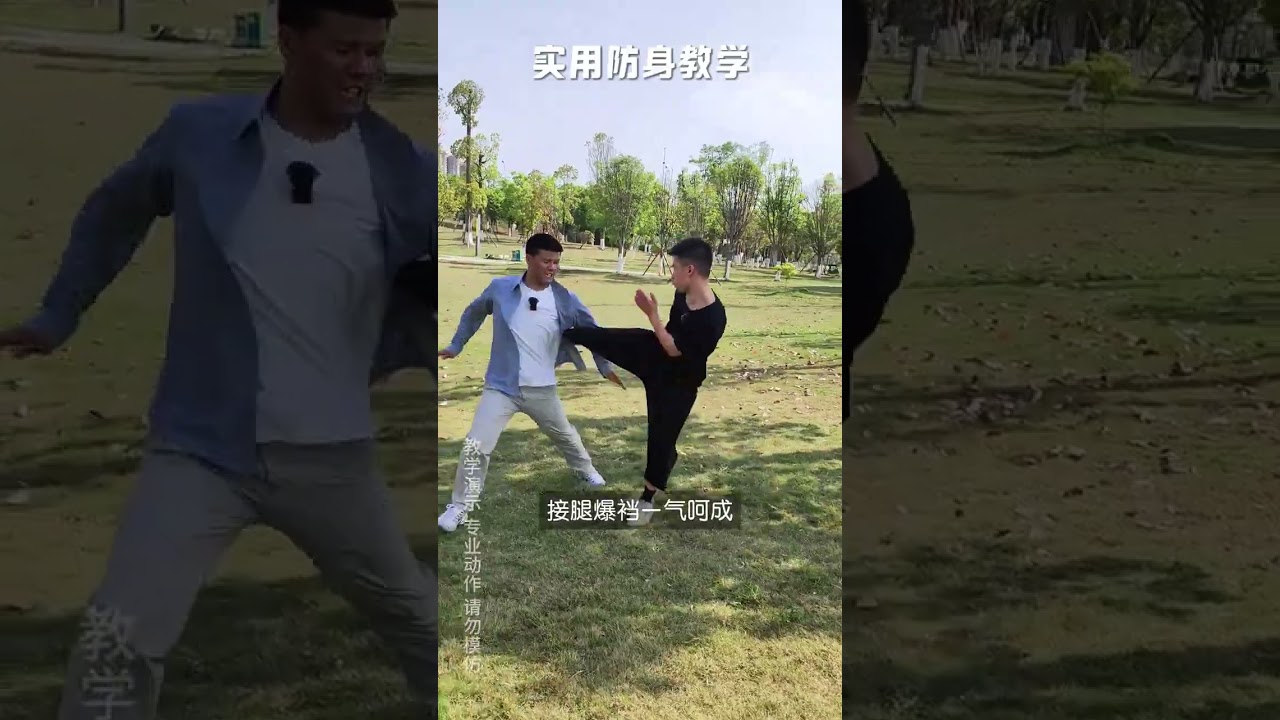Womens Self Defense
"How Weapon Registration Helps Law Enforcement and Communities Stay Safer"

How Weapon Registration Helps Law Enforcement and Communities Stay Safer
In the ongoing discourse about gun control and public safety, the concept of weapon registration often occupies a central position. Advocates argue that a systematic approach to weapon registration not only aids law enforcement but also bolsters community safety. Here’s a comprehensive look at how weapon registration can make a tangible difference in both policing and daily life.
Understanding Weapon Registration
Weapon registration involves recording the ownership of firearms and related information, such as make, model, and serial numbers. This process typically requires gun owners to provide personal information, which is then stored in a centralized database managed by law enforcement or governmental agencies.
Enhancing Law Enforcement Efficiency
-
Tracking Crime Guns: One of the primary benefits of weapon registration is that it enables law enforcement to trace firearms used in crimes. When a weapon is recovered at a crime scene, officers can quickly check its registration status to identify the owner and gather relevant information, enhancing the investigative process.
-
Preventing Gun Trafficking: Registration can deter illegal gun trafficking. By requiring that all firearms be accounted for, authorities can more easily identify suspicious transfers of weapons, helping to dismantle illegal arms networks.
- Supporting Crime Statistics: Accurate weapon registration provides data that can help law enforcement agencies analyze gun-related crimes. This data is crucial for identifying trends, allocating resources, and developing targeted community safety initiatives.
Building Community Trust
-
Promoting Responsible Ownership: Mandatory registration emphasizes the responsibilities of gun ownership. It encourages owners to think critically about their firearms, promoting safe storage practices and responsible use.
-
Fostering Public Awareness: Communities benefit when there is transparency regarding firearm ownership. Registered gun owners can serve as advocates for safe practices, helping to educate others about the importance of responsible gun use.
- Engaging with Local Initiatives: Registration systems often allow communities to engage in initiatives that promote safety, such as gun buyback programs. These programs, which reduce the number of firearms in circulation, can be more effectively implemented when weapon registration provides insights into local gun ownership patterns.
Addressing Concerns
While opponents often argue that weapon registration infringes on personal freedoms, proponents maintain that the benefits to public safety outweigh concerns about privacy. Many weapon registration systems are designed to protect personal information from unauthorized access, ensuring that the focus remains on enhancing safety rather than infringing on rights.
Global Perspectives
Countries with comprehensive weapon registration programs, such as Australia and Canada, have seen reductions in gun-related deaths and incidents. These international examples bolster the argument that effective registration systems can lead to safer societies, demonstrating that careful regulation can coexist with responsible ownership without imposing undue burden on citizens.
Conclusion
Weapon registration is a critical component in the ongoing effort to enhance public safety and support law enforcement. By providing essential tools for tracking firearms, preventing illegal activity, and fostering community engagement, weapon registration systems can play a significant role in creating safer environments for all. As discussions about firearm regulation continue, incorporating robust registration practices should be a key strategy for communities aiming to reduce gun violence and enhance overall safety.
Womens Self Defense
Uniting for Justice: Community Organizations Push for Stronger Self-Defense Legislation

Uniting for Justice: Community Organizations Push for Stronger Self-Defense Legislation
In recent years, the dialogue surrounding self-defense laws has grown more complex and critical, highlighting the need for a re-examination of legal frameworks that govern individual conduct during life-threatening encounters. As issues of personal safety, inequality, and the right to self-defense collide, community organizations across the nation are uniting to advocate for stronger self-defense legislation that not only protects individuals but also addresses systemic injustices.
The Current Landscape
Self-defense laws vary widely from state to state, resulting in a patchwork of regulations that can often leave marginalized communities under-protected. Some states have “Stand Your Ground” laws which give individuals the right to use force without the duty to retreat when threatened. Meanwhile, others adhere to more traditional “Duty to Retreat” principles, requiring individuals to avoid confrontation when possible. This inconsistency can lead to unintended consequences, particularly for people of color and those from lower socioeconomic backgrounds, who might be disproportionately criminalized in self-defense situations.
The Call for Reform
In response to these disparities, community organizations are rallying for legislative change. Groups focused on social justice, civil rights, and public safety are coming together to craft proposals aimed at reforming self-defense laws. These advocates argue that it is essential not only to ensure the right to defend oneself but also to create an equitable legal framework that reduces bias in how self-defense cases are prosecuted and adjudicated.
Key Proposals
-
Enhanced Training and Awareness: One significant proposal advocates for mandatory training in self-defense laws for both civilians and law enforcement. Understanding the legal implications of self-defense can empower individuals to make informed decisions during high-pressure situations.
-
Bias Review Measures: Community organizations are pushing for legislative measures that require law enforcement to undergo training on implicit bias and the historical context of self-defense laws. This could mitigate the risk of racial profiling and ensure that self-defense claims are evaluated fairly.
-
Legal Support and Resources: Providing legal resources and support for individuals who defend themselves can help level the playing field. Advocates suggest establishing funds or programs that can assist with legal fees for those who may not otherwise afford representation in self-defense cases.
- Community Dialogues: Engaging community members in discussions about self-defense can foster better understanding and cooperation. Organizing community forums to discuss individual rights, responsibilities, and personal safety can build trust and provide critical information.
Building Coalitions
Collaboration is at the heart of this movement. Organizations with differing focuses—such as gun rights advocates, domestic violence shelters, youth mentorship groups, and racial justice organizations—are finding common ground in the belief that self-defense is a fundamental right that must be accessible to everyone.
These coalitions are also crucial in countering misinformation about self-defense laws and their implications. By working together, they can foster a more informed public debate and promote legislation that is both just and effective.
The Path Forward
As these community organizations continue to push for stronger self-defense legislation, the conversation around justice, equity, and individual safety remains crucial. Advocates emphasize that any reform must be carefully crafted to protect the rights of all individuals while also addressing the underlying societal issues related to violence and safety.
In conclusion, the united effort of community organizations in advocating for stronger self-defense legislation reflects a growing commitment to justice that transcends traditional divides. By prioritizing equity and informed discourse, these groups are not only advocating for change in the law but are also championing the dignity and safety of every individual in society. The path to reform may be arduous, but the collective action of committed organizations can drive meaningful change in ensuring that self-defense rights are upheld for all.
Womens Self Defense
Self Defense Training For Women In A Bar Scene Or Walking The Mall — Lady Of America

http://www.ladyofamerica.com This is the last of the Lady of America Fitness for Women self defense training videos. This video is …
source
Womens Self Defense
One Punch Man #Selfdefense #Womens selfdefense #Defeat the enemy with one move #Selfdefens
-

 Womens Self Defense11 months ago
Womens Self Defense11 months agoNew Legislation Empowers Women to Defend Themselves
-

 Self Defense News1 year ago
Self Defense News1 year agoShe was convicted of killing her abusive boyfriend. Now a Maple Grove woman is home awaiting a new trial.
-

 Self Defense News1 year ago
Self Defense News1 year agoSelf-Defense for All: The new Gracie Jiu-Jitsu Pasadena is for everyone | Online Features
-

 Womens Self Defense1 year ago
Womens Self Defense1 year agoTop 5 Self-Defense Techniques Every Woman Should Know
-

 Womens Self Defense7 months ago
Womens Self Defense7 months agoUnderstanding State-by-State Variation in Self Defense Laws
-

 Womens Fitness1 year ago
Womens Fitness1 year agoXtreme Bodyweight HIIT (Lots of Jumping!) | Joanna Soh (Fio Series)
-

 Womens Preparedness1 year ago
Womens Preparedness1 year ago10 essential skills for surviving in the great outdoors
-

 Womens Preparedness1 year ago
Womens Preparedness1 year agoEmpower Yourself: A Guide to Female Survival Planning


